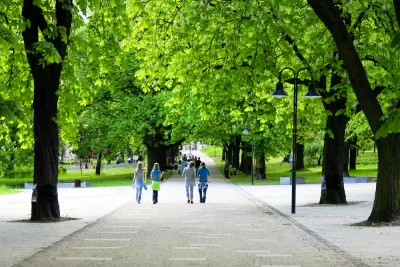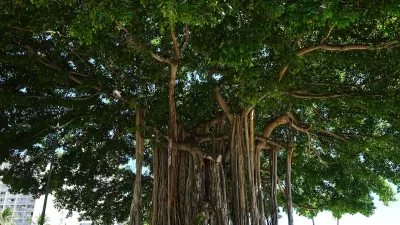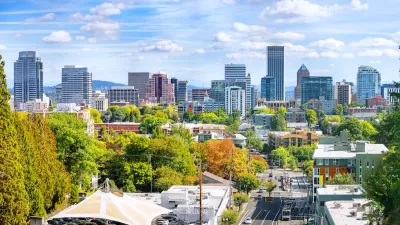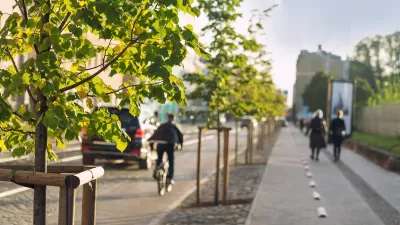Sarah Laskow reports on recent research on the surprisingly two-way connection between the happiness of urban trees and the happiness of urban humans.

Sarah Laskow begins an article for Next City by describing the work of Mark Taylor, a public health researcher at the University of Trnava in Slovakia. Taylor and his colleagues "collected data on two variables: the density of street trees and the number of antidepressant prescriptions in London’s 33 boroughs." The methodology made it possible to draw a "connection between nature and mental health without relying on people’s own accounts of their well-being."
The study, published in the Landscape and Urban Planning Journal, found that "even after adjusting for factors like unemployment and affluence, the areas that have the most trees along the streets also had fewer prescriptions for antidepressants."
Laskow also describes the research of Jess Vogt, a visiting assistant professor at Furman University, in South Carolina, whose research examines the following question: "How can people help street trees thrive — and vice versa?" Vogt examined 35 projects, in 25 Indianapolis neighborhoods. "They documented whether 1,345 trees had lived or died and looked more closely at 616 trees, to see how they’d grown." Vogt's findings suggest that the trees' quality of life "wasn’t just influenced by its immediate surroundings, but by the people they interacted with."
FULL STORY: How Trees Can Make City People Happier (and Vice Versa)

Planetizen Federal Action Tracker
A weekly monitor of how Trump’s orders and actions are impacting planners and planning in America.

Map: Where Senate Republicans Want to Sell Your Public Lands
For public land advocates, the Senate Republicans’ proposal to sell millions of acres of public land in the West is “the biggest fight of their careers.”

Restaurant Patios Were a Pandemic Win — Why Were They so Hard to Keep?
Social distancing requirements and changes in travel patterns prompted cities to pilot new uses for street and sidewalk space. Then it got complicated.

Platform Pilsner: Vancouver Transit Agency Releases... a Beer?
TransLink will receive a portion of every sale of the four-pack.

Toronto Weighs Cheaper Transit, Parking Hikes for Major Events
Special event rates would take effect during large festivals, sports games and concerts to ‘discourage driving, manage congestion and free up space for transit.”

Berlin to Consider Car-Free Zone Larger Than Manhattan
The area bound by the 22-mile Ringbahn would still allow 12 uses of a private automobile per year per person, and several other exemptions.
Urban Design for Planners 1: Software Tools
This six-course series explores essential urban design concepts using open source software and equips planners with the tools they need to participate fully in the urban design process.
Planning for Universal Design
Learn the tools for implementing Universal Design in planning regulations.
Heyer Gruel & Associates PA
JM Goldson LLC
Custer County Colorado
City of Camden Redevelopment Agency
City of Astoria
Transportation Research & Education Center (TREC) at Portland State University
Camden Redevelopment Agency
City of Claremont
Municipality of Princeton (NJ)





























